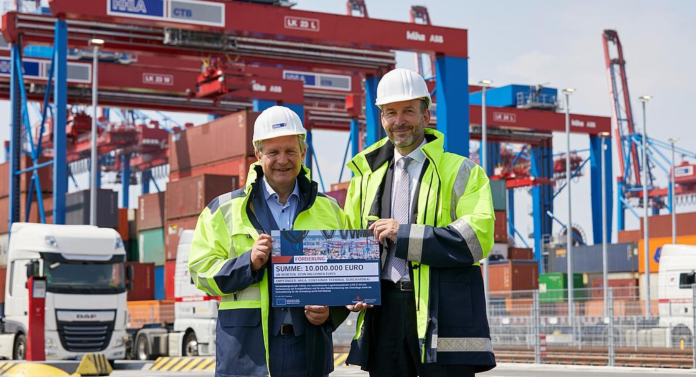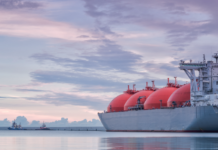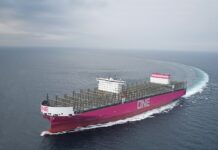
The ongoing electrification of the storage area at Hamburger Hafen und Logistik AG (HHLA) Container Terminal Burchardkai continues with the start of operations of four new modern storage blocks.
The purpose of this switch is to drive forward the decarbonisation of workflows as well as the reduction of emissions at the port of Hamburg in Germany. Moreover, the four new storage blocks were gradually put into operation over the first half of 2023.
The automated container yard at CTB has a capacity of almost 39,000 TEUs spread across a total of 19 storage blocks.
According to HHLA, “the gradual switch of the energy-intensive process of moving goods in and out of storage using diesel-powered straddle carriers in favour of electric storage crane systems will lead to the further reduction of carbon and harmful emissions at the terminal.”
The automated storage crane systems that store and prepare containers for onward transport run on green electricity.
HHLA executive board member, Jens Hansen commented, “By using new technologies, we want to fully electrify the container handling process at CTB, our largest terminal in Hamburg, while significantly improving our energy efficiency. Using electricity from renewable sources will allow us to continue decarbonising our workflows at the port. We previously demonstrated how this can work at the neighbouring Container Terminal Altenwerder. The switch to environmentally friendly storage crane systems will bring us a big step closer to this goal.”
This transition creates the conditions for the transformation of horizontal transport into fully automated container transport (Automated Guided Vehicles), which are battery-powered and therefore also climate-neutral.
Jens Kerstan, German Minister for Environment, Climate, Energy and Agriculture, said, “Climate protection begins locally. With the start-up of the fourth automated storage crane system, we have achieved a milestone on our path towards decarbonising Container Terminal Burchardkai.”
He added, “This project will save almost five and a half million litres of diesel and 11,000 tonnes of CO2 every year. And there’s more: electrified storage cranes are not only significantly quieter; they allow a considerable amount of soot, particulate matter and nitrogen to be avoided.”





